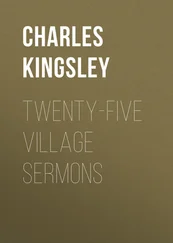Charles Kingsley - Hypatia. or New Foes with an Old Face
Здесь есть возможность читать онлайн «Charles Kingsley - Hypatia. or New Foes with an Old Face» — ознакомительный отрывок электронной книги совершенно бесплатно, а после прочтения отрывка купить полную версию. В некоторых случаях можно слушать аудио, скачать через торрент в формате fb2 и присутствует краткое содержание. Жанр: Альтернативная история, foreign_antique, foreign_prose, Исторические приключения, на английском языке. Описание произведения, (предисловие) а так же отзывы посетителей доступны на портале библиотеки ЛибКат.
- Название:Hypatia. or New Foes with an Old Face
- Автор:
- Жанр:
- Год:неизвестен
- ISBN:нет данных
- Рейтинг книги:3 / 5. Голосов: 1
-
Избранное:Добавить в избранное
- Отзывы:
-
Ваша оценка:
- 60
- 1
- 2
- 3
- 4
- 5
Hypatia. or New Foes with an Old Face: краткое содержание, описание и аннотация
Предлагаем к чтению аннотацию, описание, краткое содержание или предисловие (зависит от того, что написал сам автор книги «Hypatia. or New Foes with an Old Face»). Если вы не нашли необходимую информацию о книге — напишите в комментариях, мы постараемся отыскать её.
Hypatia. or New Foes with an Old Face — читать онлайн ознакомительный отрывок
Ниже представлен текст книги, разбитый по страницам. Система сохранения места последней прочитанной страницы, позволяет с удобством читать онлайн бесплатно книгу «Hypatia. or New Foes with an Old Face», без необходимости каждый раз заново искать на чём Вы остановились. Поставьте закладку, и сможете в любой момент перейти на страницу, на которой закончили чтение.
Интервал:
Закладка:
So he looked past them into the temple halls; into a lustrous abyss of cool green shade, deepening on and inward, pillar after pillar, vista after vista, into deepest night. And dimly through the gloom he could descry, on every wall and column, gorgeous arabesques, long lines of pictured story; triumphs and labours; rows of captives in foreign and fantastic dresses, leading strange animals, bearing the tributes of unknown lands; rows of ladies at feasts, their heads crowned with garlands, the fragrant lotus-flower in every hand, while slaves brought wine and perfumes, and children sat upon their knees, and husbands by their side; and dancing girls, in transparent robes and golden girdles, tossed their tawny limbs wildly among the throng.... What was the meaning of it all? Why had it all been? Why had it gone on thus, the great world, century after century, millennium after millennium, eating and drinking, and marrying and giving in marriage, and knowing nothing better.... how could they know anything better? Their forefathers had lost the light ages and ages before they were born.... And Christ had not come for ages and ages after they were dead.... How could they know?.... And yet they were all in hell.... every one of them. Every one of these ladies who sat there, with her bushy locks, and garlands, and jewelled collars, and lotus-flowers, and gauzy dress, displaying all her slender limbs-who, perhaps, when she was alive, smiled so sweetly, and went so gaily, and had children, and friends, and never once thought of what was going to happen to her—what must happen to her.... She was in hell.... Burning for ever, and ever, and ever, there below his feet. He stared down on the rocky floors. If he could but see through them.... and the eye of faith could see through them.... he should behold her writhing and twisting among the flickering flame, scorched, glowing.... in everlasting agony, such as the thought of enduring for a moment made him shudder. He had burnt his hands once, when a palm-leaf but caught fire.... He recollected what that was like.... She was enduring ten thousand times more than that for ever. He should hear her shrieking in vain for a drop of water to cool her tongue.... He had never heard a human being shriek but once.... a boy bathing on the opposite Nile bank, whom a crocodile had dragged down.... and that scream, faint and distant as it came across the mighty tide, had rung intolerable in his ears for days.... and to think of all which echoed through those vaults of fire-for ever! Was the thought bearable!—was it possible! Millions upon millions burning forever for Adam’s fall .... Could God be just in that?....
It was the temptation of a fiend! He had entered the unhallowed precincts, where devils still lingered about their ancient shrines; he had let his eyes devour the abominations of the heathen, and given place to the devil. He would flee home to confess it all to his father. He would punish him as he deserved, pray for him, forgive him. And yet could he tell him all? Could he, dare he confess to him the whole truth—the insatiable craving to know the mysteries of learning—to see the great roaring world of men, which had been growing up in him slowly, month after month, till now it had assumed this fearful shape? He could stay no longer in the desert. This world which sent all souls to hell—was it as bad as monks declared it was? It must be, else how could such be the fruit of it? But it was too awful a thought to be taken on trust. No; he must go and see.
Filled with such fearful questionings, half-inarticulate and vague, like the thoughts of a child, the untutored youth went wandering on, till he reached the edge of the cliff below which lay his home. It lay pleasantly enough, that lonely Laura, or lane of rude Cyclopean cells, under the perpetual shadow of the southern wall of crags, amid its grove of ancient date-trees. A branching cavern in the cliff supplied the purposes of a chapel, a storehouse, and a hospital; while on the sunny slope across the glen lay the common gardens of the brotherhood, green with millet, maize, and beans, among which a tiny streamlet, husbanded and guided with the most thrifty care, wandered down from the cliff foot, and spread perpetual verdure over the little plot which voluntary and fraternal labour had painfully redeemed from the inroads of the all-devouring sand. For that garden, like everything else in the Laura, except each brother’s seven feet of stone sleeping-hut, was the common property, and therefore the common care and joy of all. For the common good, as well as for his own, each man had toiled up the glen with his palm-leaf basket of black mud from the river Nile, over whose broad sheet of silver the glen’s mouth yawned abrupt. For the common good, each man had swept the ledges clear of sand, and sown in the scanty artificial soil, the harvest of which all were to share alike. To buy clothes, books, and chapel furniture for the common necessities, education, and worship, each man sat, day after day, week after week, his mind full of high and heavenly thoughts, weaving the leaves of their little palm-copse into baskets, which an aged monk exchanged for goods with the more prosperous and frequented monasteries of the opposite bank. Thither Philammon rowed the old man over, week by week, in a light canoe of papyrus, and fished, as he sat waiting for him, for the common meal. A simple, happy, gentle life was that of the Laura, all portioned out by rules and methods, which were held hardly less sacred than those of the Scriptures, on which they were supposed (and not so wrongly either) to have been framed. Each man had food and raiment, shelter on earth, friends and counsellors, living trust in the continual care of Almighty God; and, blazing before his eyes, by day and night, the hope of everlasting glory beyond all poets’ dreams.... And what more would man have had in those days? Thither they had fled out of cities, compared with which Paris is earnest and Gomorrha chaste,—out of a rotten, infernal, dying world of tyrants and slaves, hypocrites and wantons,—to ponder undisturbed on duty and on judgment, on death and eternity, heaven and hell; to find a common creed, a common interest, a common hope, common duties, pleasures, and sorrows.... True, they had many of them fled from the post where God had placed them, when they fled from man into the Thebaid waste.... What sort of post and what sort of an age they were, from which those old monks fled, we shall see, perhaps, before this tale is told out.
‘Thou art late, son,’ said the abbot, steadfastly working away at his palm-basket, as Philammon approached.
‘Fuel is scarce, and I was forced to go far.’
‘A monk should not answer till he is questioned. I did not ask the reason. Where didst thou find that wood?’
‘Before the temple, far up the glen.’
‘The temple! What didst thou see there?’
No answer. Pambo looked up with his keen black eye.
‘Thou hast entered it, and lusted after its abominations.’
‘I—I did not enter; but I looked—’
‘And what didst thou see? Women?’
Philammon was silent.
‘Have I not bidden you never to look on the face of women? Are they not the firstfruits of the devil, the authors of all evil, the subtlest of all Satan’s snares? Are they not accursed for ever, for the deceit of their first mother, by whom sin entered into the world? A woman first opened the gates of hell; and, until this day, they are the portresses thereof. Unhappy boy! What hast thou done?’
‘They were but painted on the walls.’
‘Ah!’ said the abbot, as if suddenly relieved from a heavy burden. ‘But how knewest thou them to be women, when thou hast never yet, unless thou liest—which I believe not of thee—seen the face of a daughter of Eve?’
‘Perhaps—perhaps,’ said Philammon, as if suddenly relieved by a new suggestion—‘perhaps they were only devils. They must have been, I think, for they were so very beautiful.’
Читать дальшеИнтервал:
Закладка:
Похожие книги на «Hypatia. or New Foes with an Old Face»
Представляем Вашему вниманию похожие книги на «Hypatia. or New Foes with an Old Face» списком для выбора. Мы отобрали схожую по названию и смыслу литературу в надежде предоставить читателям больше вариантов отыскать новые, интересные, ещё непрочитанные произведения.
Обсуждение, отзывы о книге «Hypatia. or New Foes with an Old Face» и просто собственные мнения читателей. Оставьте ваши комментарии, напишите, что Вы думаете о произведении, его смысле или главных героях. Укажите что конкретно понравилось, а что нет, и почему Вы так считаете.












